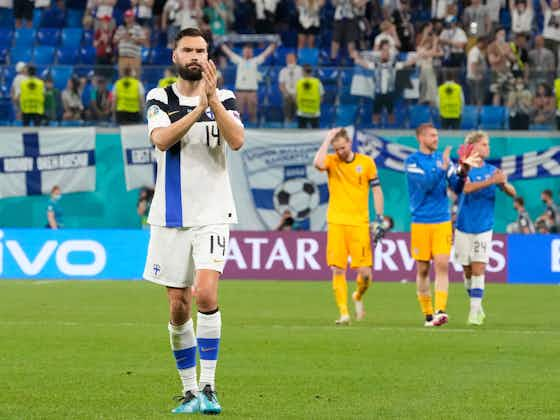SempreMilan
·21 June 2023
First player discovered through ‘Moneyball’ explains why method could work for Milan

In partnership with
Yahoo sportsSempreMilan
·21 June 2023

The name Tim Sparv might not be one of the biggest or best-known in football, but it could end up having some relevance for AC Milan’s future.
La Gazzetta dello Sport spoke to Sparv about the ‘Moneyball’ system that Milan are expected to rely more and more upon under RedBird Capital and the new management team of Geoffrey Moncada and Giorgio Furlani.
Sparv is Finnish and stands at almost two metres tall, has a long and thick beard, writes books and works with Sparta Praha as an assistant coach of the second team.
He was one of the first football players to be discovered through statistics, that ingenious thread of data that unites baseball and football, the Oakland Athletics and Milan, Tim Sparv and Brad Pitt, the star of the film that brought Moneyball to the mainstream.
The Danish side FC Midtjylland were among the first to use this method in football and back in 2014 they bought Sparv from German second division side Greuther Fürth.
They did so after a 20-page report ended up on the desk of Rasmus Ankersen, the sporting director who put into practice the ideas of Billy Beane.
“When I arrived in Denmark, Ankersen took me aside and revealed that he had analysed hundreds of data on my matches. He and his team knew everything: the number of tackles this season, how many times I had pushed into the penalty area, shots on goal. I had only scored one goal, but I stood out for more,” Sparv said.
You stayed for six years. The data was right, then?
“It wasn’t an experiment, but a precise philosophy. Matthew Benham, the owner, loved to repeat: if we can’t compete economically with the big clubs, then we have to find the hidden gold nuggets in our own way, through statistics he has.
“It changed the history of the club. In 2015 we won the league for the first time, then we did it again in 2018 and 2020. In 2016, we also beat Manchester United in the Europa League.”
How does the scouting area work?
“They have a team of analysts and observers who only deal with this. They study what the ordinary eye cannot see. Something that goes beyond goals, assists or simple dribbling. Each of us had a personalised report with a series of individual and team data. That’s how they discovered me, changing my life.”
But is it possible to discover the new Mbappè only through the use of data?
“I don’t think so. Football is also about feelings, sensations, moods, bad days and other lucky ones. The player must be observed live, but the data helps and is essential for framing the complete context.
“I’ll take my case: in Germany I hadn’t got even an assist, but I stood out in statistics that perhaps other clubs had underestimated. Or perhaps not even considered.”
The emotional impact of a footballer also counts?
“Of course. The data helps to evaluate what you need, perhaps in a preliminary phase, as it was with me. Today I study as a coach and I often ask myself: what do I need? How many players are able to do what I’m looking for?
“Let me give you an example: do I need a winger who dribbles? I analyse how many times he beats a man, how many times he gets through on goal, how many he crosses, how many times he shoots on goal, expected goals. Then I go and see him. So I have the complete picture.”
So is it a risk to rely only on statistics?
“There is no exact science, but what is certain is that by now we need to make use of the data. Adapt to the times and change our approach and mentality. Milan, for example, is adopting the right strategy. I am convinced that RedBird is the ideal owner for enhancing the history of this club.”
Do you use data in your work?
“Obviously not always, but yes. It is fundamental.”
Have you ever been to Italy?
“At the age of 14 I had a trial with Sampdoria, then I faced the Azzurri twice with Finland, in the national team. I’d like to work with you [in Italy], there’s an obsession with football that excites me. Who knows.”
More Stories / Exclusive






























































